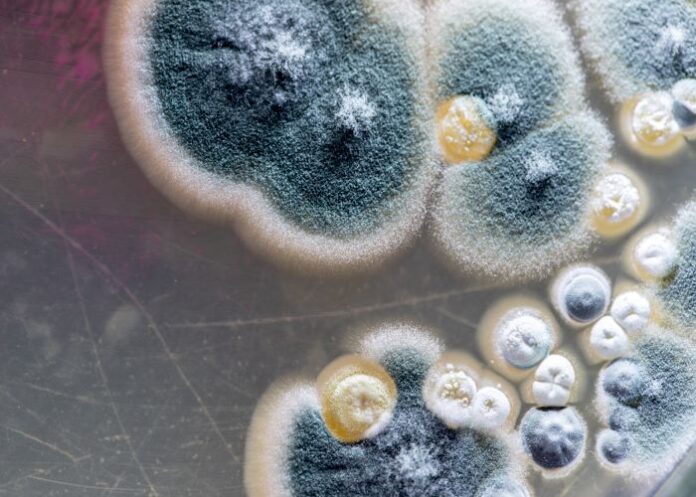Allergic reactions to fungi were described 300 years ago, but the importance of allergy to fungi has been underestimated for a long time, according to scientists, who say mould exposure can weaken the immune system, making people more vulnerable to other infectious diseases.
It’s also been linked to liver cancer, bleeding in the lungs, along with setting off allergies and asthma attacks. In some instances, it causes death.
US-based Dr Anindya Chanda has studied the effects of toxic fungal pathogens for 20 years, and says the danger presented by the “silent killer”, mould, is under-reported and widely misunderstood.
The chief executive of the Virginia biotech start-up, Mycologics, told The Independent that because it requires specific blood or urine testing to identify, it’s often overlooked.
In America, after Hurricane Ian had swept through Florida in September, thousands of people were displaced or found their homes underwater.
One couple said the water in their house subsided a few days later, but toxic mould began to grow “dramatically” on walls, ceilings and air vents in their rented bungalow, and the family of six were forced to board up a bedroom and bathroom where the mould was at its worst and wait for help.
In the ensuing weeks, the husband experienced fatigue and shortness of breath, and suffered two asthma attacks that required hospitalisation, and on Christmas Eve he suffered a third serious attack and was taken to hospital where he died on 2 January. Doctors told her he had suffered a hypoxic brain issue due to a lack of oxygen.
His widow said a handyman belatedly arrived at the house to do repairs, and while looking for the source of the mould, he broke open an inner wall — and more of the toxic sludge came pouring out.
She said a toxicity report on their house found that the “numbers were through the roof”.
According to the Centres for Disease Control and Prevention, studies have been inconclusive on whether toxic mould is to blame for many of the health conditions it has been linked to.
But Chanda believes it’s due to a lack of research and funding.
After Hurricane Katrina that devastated New Orleans in 2005, studies showed an increase in the prevalence of asthma where mould had been growing, Chanda said.
And when historic flooding hit South Carolina in 2015, thousands of college students reported that mould had triggered asthma attacks and allergies.
“I call it a silent killer, because it is so hard to diagnose,” he told The Independent.
“If you are breathing these spores and your immune system has been substantially weakened, it also affects your mental health. It has a lot of other impacts on your overall quality of life.”
He said despite the rising number of reported cases, no records exist to show how many Americans fall ill from breathing the spores.
This is in part due to the difficulty in establishing causualty between a fungal exposure and a disease.
Black, or toxic, mould is sometimes referred to as stachybotrys chartarum. It has a distinctive musty smell and is most commonly found in wallpaper and drywall in damp or water-damaged buildings.
It is usually caused by excess moisture in the home, and can be especially prevalent after natural disasters such as hurricanes and flooding.
The CDC says even otherwise healthy people can suffer shortness of breath, coughing or wheezing after being exposed to mould.
CDC article – What is Mold? (Open access)
See more from MedicalBrief archives:
COVID19: Asthma attacks drop 40% among Black and Hispanic individuals
UVC lights and airborne microorganisms: a step further in air disinfection
Threat of resistance to anti-fungal drugs under-recognised

